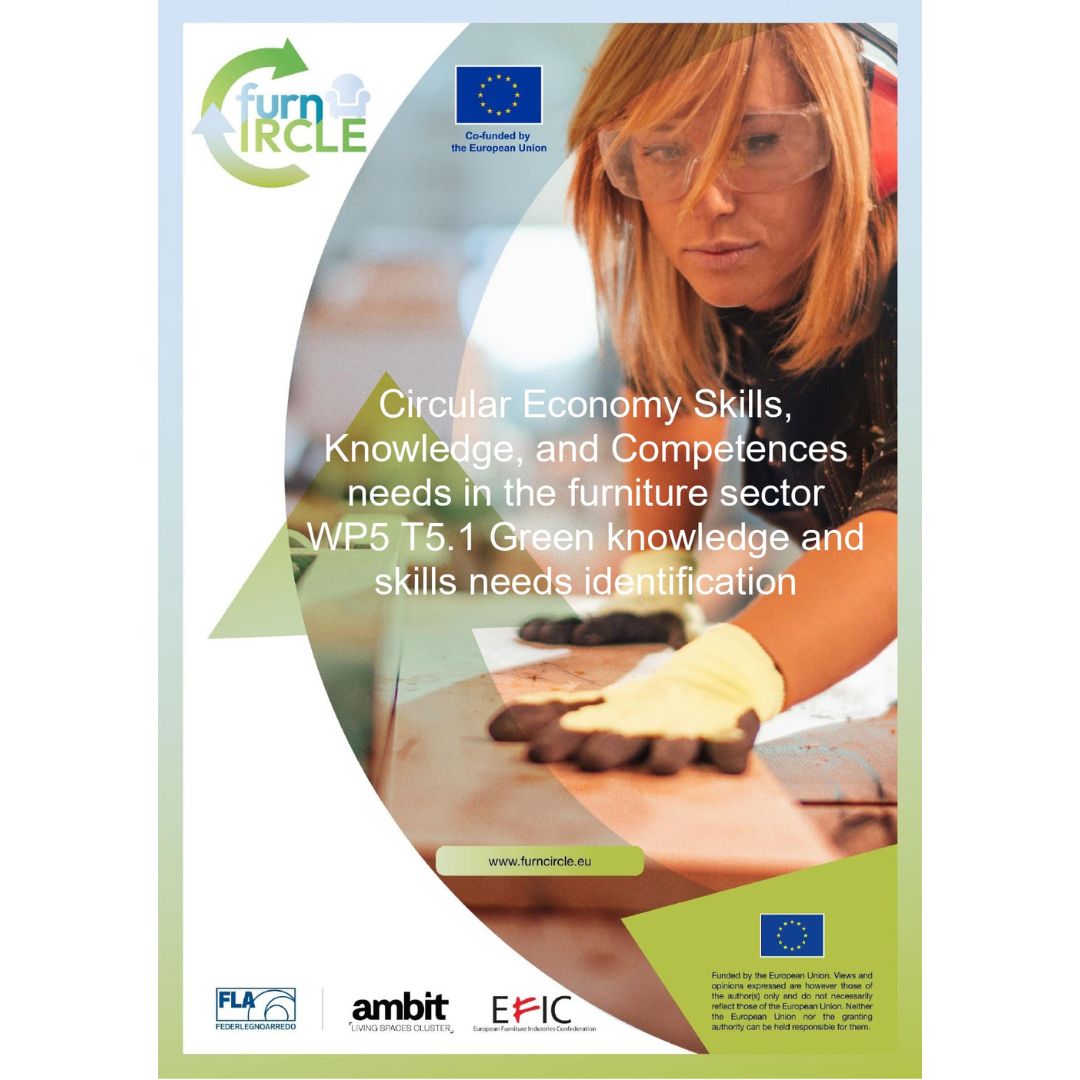A new report, Circular Economy Skills, Knowledge, and Competences Needs in the Furniture Sector, presents key insights into the capabilities required to accelerate the transition to a Circular Economy (CE) in Europe’s furniture and woodworking industries.
Based on 46 targeted responses from professionals across design, production, R&D, and business development, the FurnCIRCLE survey reveals both widespread interest in CE but also significant barriers and skill gaps.
While 78% of respondents already apply the 9/10 Rs Framework and 80% implement eco-design principles, widespread barriers persist. These include financial and cultural constraints, limited consumer awareness, fragmented regulation, and a shortage of skilled staff.
The survey identifies essential knowledge and skills needs for managers, particularly in CE principles, circular business models, systems thinking, logistics, and innovation. Nearly all respondents (98%) stressed the need for additional education, especially in CE fundamentals, R&D, eco-design and innovation, strategy, supply chain management, leadership and production management.
Training should be role-specific and combine in-company and external formats. Although 65% see CE as an added role, 78% support the need for formal university-level qualifications.
The study concludes that tailored workforce development, supported by training tailored to company size and departmental function and backed by leadership and investment, is vital for embedding CE across the sector.



